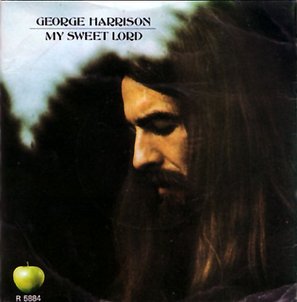Ow, I go off for four days and my ears start burning. Oh, it's youse guys. Nyuk.
nomo wrote:Also, someone should sue the Matinee for keyword-hijacking the term "keyword hijacking".
That would prove that such a thing is possible, is done, and has some tactical value.
You're running the ball down the field for me, thanks.
As it stands, that term originated in the internet search industry, and anyone claiming that the Matinee somehow came up with that himself is showing nothing but ignorance.
I did coin the term on my own head when I saw KH in the news cycle February 2005.
I realized that Ward Churchill was being villified in reich-wing media for using the expression "like little Eichmanns" and it was just before the CIA was supposed to release documents showing they'd hired Nazi Adolph Eichmann's staff after WWII.
I realized this was a Magician's Other Hand diversion just by hijacking keywords.
And I was right.
I posted my assessment at DemocraticUnderground.com on 2/4/05 that this was why Ward Churchill was getting beaten up.
I didn't know that the very same day the CIA was releasing its Eichmann documents to the National Security Archive .
The day before this, 2/3/05, is when the internet alarm was sounded about gaming Google, I think. Or atleast tt had only just started to come out.
Timing.
http://www.theregister.co.uk/2005/02/03/google_adwords_attack/
It's rather odd that this is the same time when articles about gaming Google with KH started to pop up, too. It almost seems that the Google KH was trumpeted as a diversion from the CIA's KH, not the other way around, even though KH has gone on for many years. Maybe too many people like me were catching on.
Several things about how KH is NOT just an internet phenomenon-
>The use of decoys for military purposes is an ancient tactic. Eons old.
>The US military has for decades had the use of decoys in standard practice.
>The US military has for decades codified a counterpropaganda tactic called "imitative deception."
>The NSA has for decades been monitoring communications for keywords.
>Language has been shown since studies in the 1930s to be a hierarchy of associations with keywords being the 'face cards' of the vocabulary deck.
See 'Zipf's Law' named after George Kingsley Zipf who published 'The Psychology of Language' in 1935.
One person who studied Zipf and expanded on his work was Charles E. Osgood who went on to reveal the dynamics of semantic differential in the 1960s and also worked for the CIA.
In 1961 William McGuire at Yale introduced Inoculation Theory to cognitive science and the keyword hijacking skyrocketed after this.
Interference Theory describes ways to prevent recall using linguistics both before and after exposure to targeted information.
Adjective checklists (a form of keyword metrics) have been used to evaluate attitudes since the 1930s and were used during the Vietnam War to determine the morale of military units with accuracy.
The "Mutual Exclusivity" phenomenon of the brain pre-biasing strongly to the first learned definition of a word has been known about atleast since the development of Sesame Street for children during the Vietnam War, long before Google and the internet.





